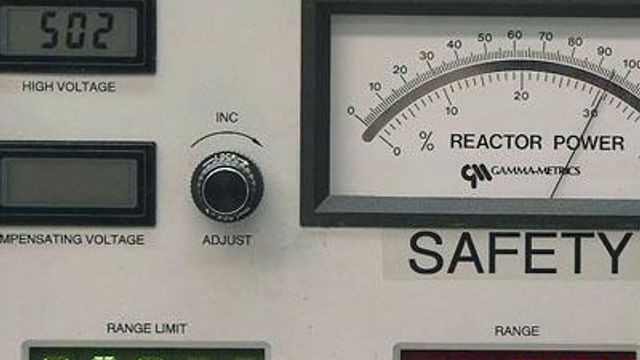NC State is home to nuclear reactor
In the middle of campus of North Carolina State University lies a working 1-megawatt nuclear reactor.
Posted — UpdatedSixty years ago, N.C. State was the nation’s first academic institution to build a nuclear reactor. The current model sitting at the university’s Burlington Engineering Laboratories is 40 years old.
The reactor, which produces thermal watts instead of electrical, gives 300 nuclear engineering students at N.C. State a chance to learn how to operate a reactor.
“The main purpose of this reactor is basically training and teaching. We also conduct scientific research,” said Ayman Hawari, the director of the school’s Nuclear Reactor Program.
Hawari said the campus facility is safe and designed to withstand natural disasters.
The facility is also small, about 3,000 times less powerful than the Shearon Harris nuclear plant in western Wake County.
Hawari said the school’s reactor is designed to prevent disasters like those affecting the Fukushima Dai-ichi nuclear power plant in Japan, where radiation leaks and the failure of safety systems followed a deadly tsunami and earthquake.
Waters levels dropped precipitously on Monday inside the Japanese reactor, twice leaving the uranium fuel rods completely exposed and raising the threat of a meltdown.
Hawari said N.C. State's reactor is not designed to meltdown if water level drops in the core.
It is too soon to tell how Japan’s plant will fare, but Hawari said he expects much will be learned about nuclear energy in the long run.
“It’s lessons learned for everyone around the world, including us in the United States,” he said.
Despite an increased interest in alternative energy sources, Hawari said nuclear power is still an important part of the future.
“We'll learn a lot from what happened in Japan. We'll take it. We'll absorb it, and we'll even get better,” he said.
Last year, N.C. State won a federal grant to upgrade the reactor to 2 megawatts of energy. Hawari said that will allow students to conduct more complex experiments.
• Credits
Copyright 2024 by Capitol Broadcasting Company. All rights reserved. This material may not be published, broadcast, rewritten or redistributed.





